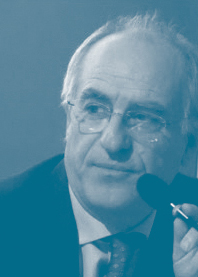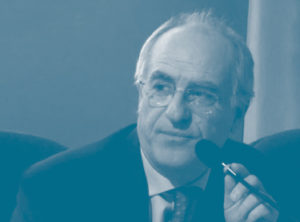Massimo Florio
‐ Professor of Public Economics ‐
Milan European Economy Workshops, from 2002 to 2017
Massimo Florio coordinated 16 workshops, from 2002 to 2017, that served the purpose to discuss each year a public policy topic of interest for economists across the European Union.
- XVI Milan European Economy Workshop, 22-24 June 2017
Innovation and services of general interest: from the lab to enterprises and citizens
Jointly organised by the EUsers network ,the Department of Economics, Management and Quantitative Methods (DEMM) of the University of Milan and CIRIEC .
- XV Milan European Economy Workshop, 30 June 2016
Recent advances in the Economics and Management of Public Enterpris
The EUsers network, in collaboration with CIRIEC and the Department of Economics, Management and Quantitative Methods (DEMM) of the University of Milan, has organised the XV edition of the Milan European Economy Workshop.
- XIV Milan European Economy Workshop, 25-26 June 2015
Major Public Enterprises in a global perspective
The workshop presented and discussed the knowledge developed within the EUsers Network on the empirical analysis of the different mode of provision, with a specific focus on public providers. It focused on a systematic analysis, country by country, on some key research questions:
- What is the extent of the survival or expansion of the public enterprise (PE) in a global perspective, particularly as far as large enterprises are concerned?
- Who are the major players at national and international level?
- How do they perform? How is the control of government implemented?
- What is the mission assigned by governments to the major players?
- To what extent are PE of national significance transforming themselves in multinationals?
Country papers discussed include European countries (e.g. France, Germany, Ireland, Finalnd, Greece, etc.), Chinese market, Asian countries (e.g. Japan and India), Americas (e.g. Uruguay, Canada, Brazil, Chile) and other Mediterranean countries (e.g. Algeria, Turkey).
- XIII Milan European Economy Workshop, 13-14 June 2014
The Cost-Benefit Analysis of Research Infrastructures
The workshop discussed the preliminary results of the project “Cost/Benefit Analysis in the Research, Development and Innovation Sector”, funded by the European Investment Bank Institute.
The measurement or assessment of the cost/benefit of research, development and innovation (RDI) infrastructure is notoriously difficult. And yet global policy discussions increasingly focus on innovation and the knowledge economy as a driver for long-term sustainable growth. A multitude of methods and indicators are used to study socio-economic impacts. However, the current methodology for the assessment of the cost/benefit of RDI infrastructures is not satisfactory. The aim of the workshop is to present some results of a research project that builds upon the current international practice to produce a cost/benefit analysis (CBA) model for decision making which allows for an assessment the potential future net social benefits generated by a research infrastructure and the uncertainty and risks associated to it. The methodological section is complemented by selected case studies of RDI infrastructures and an overview of related topics.
- XII Milan European Economy Workshop, 13-15 June 2013
Case histories of Public Enterprises: learning from success and failure
The workshop discussed some of the preliminary results of the Ciriec International project “The Future of Public Enterprise”. Despite the large-scale privatizations in the last three decades, governments, either at national or local level, still own or party-own a wide range of organizations providing public services. Privatization policies have left under the control of government a core of public enterprises. Recently, some episodes have also been reversing the previous policy trend. The question arises: how should governments define the missions, the performance criteria, and the governance mechanisms of the public enterprises in a changing environment? For the purpose of the Ciriec project, the notion of ‘public enterprises’ has been broadly referred to organizations (a) directly producing public services, either through liberalized market arrangements or under franchised monopoly, (b) ultimately owned or de facto controlled by public sector entities, (c) with a public mission, (d) whose ownership in principle can be shifted to the private sector. The theme is intended to be a broad inquiry into the phenomenon.
- XI Milan European Economy Workshop, 22-23 June 2012
The History of European Infrastructure Finance
Over the long-term, the finance of infrastructure has been organised in a myriad of different ways from being financed by fully private to fully public Institutions. Though no country is completely alike, there have been considerable commonalities across the European context. Our research project aims to collect and analyse data on infrastructure finance over the long-term, and on this basis identify phases in finance infrastructure across sectors, countries, financial as well as other regulatory and socio-economic institutions. This goes along with the analyses of the outcomes of public engagement in public infrastructure provisioning in Europe as well as with an identification and exploration of European best practice examples for infrastructure financing that provide lessons learnt for contemporary policy debates.
- X Milan European Economy Workshop, 8-9 June 2011
Quality of institutions and the performance of public service providers
- IX Milan European Economy Workshop, 10-11 June 2010
An Agenda for the New Public Enterprise. Ownership and governance for the general interest
- VIII Milan European Economy Workshop, 11-12 June 2009
Public Investment under Budgetary Restrictions in the EU New Member States
- VII Milan European Economy Workshop, 13-14 June 2008
Industrial Clusters, Globalization and Regional Policy in the EU
- VI Milan European Economy Workshop, 8-9 June 2007
Consumers and Utility Reforms in the European Union
- V Milan European Economy Workshop, 26-27 May 2006
Cost- benefit Analysis and Incentives in Evaluation: the EU Structural Funds 2007-2013
- IV Milan European Economy Workshop, 27-28 May 2005
The economic consequences of the European Constitution
- III Milan European Economy Workshop, 28-29 May 2004
Agendas for an enlarged EU: the challenge of growth
- II Milan European Economy Workshop, 6-7 June 2003
Public services and European Economic Integration
- I Milan European Economy Workshop, 31 May-1 June 2002
The welfare impact of British Privatisations 1979-1997
Click here to know more.


